On January 10, 2021, the "Green Principles in Administrative Law" conference hosted by the Law School of China University of Political Science and Law, organized by the Institute of Administrative Law of the Law School and the Public Decision Research Center of CUPL and sponsored by Zhongwen Law Firm, was grandly held at Beijing Bupt Hotel. Experts and scholars ,from China University of Political Science and Law, Peking University, Renmin University of China, Nankai University, Zhongnan University of Economics and Law, Chongqing University and other universities, were invited to this meeting. So were Lawyer Wu Ge,who was the director of Zhongwen Law Firm and the executive vice president of China Case Law Research Association, as well as Lawyer Yang Fan, the legal counsel of Zhongwen Law Firm and Dai Wei , the chief operating officer of the firm. In addition, some other scholars and students participated in this conference via Tencent Meeting.
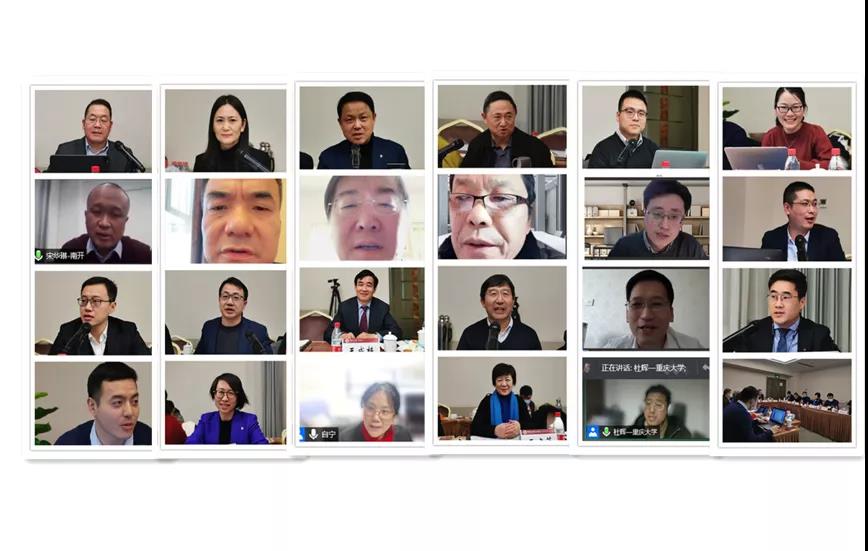
Since the beginning of the 21st century, environmental issues have become a common problem faced by all mankind. All countries are looking for countermeasures,and China is no exception. The Party Central Committee has made it clear that we must firmly follow the path of ecological priority and green development, and promote development under the premise of protecting the ecology. As a result, the Green Principle has been written into the Civil Code and become one of the statutory principles. However, the research on green principle is still insufficient in administrative law, which is aimed at regulating the operation of public power.
The theme of this conference was "Green Principles in Administrative Law". The participants had a heated exchange and discussion on the issues of why green is a principle, why it becomes a principle of administrative law, and how to connect with other principles of administrative law.
The opening ceremony was presided at by Prof. Luo Zhimin, Director of the Administrative Law Research Institute of CUPL. Prof.Jiao Hongchang, Dean of Law School of CUPL, and Lawyer Wu Ge, Director of Zhongwen Law Firm, delivered speeches. Prof. Jiao Hongchang demonstrated the importance of introducing Green Principles into administrative law from the perspective of the constitution, and fully recognized the innovation of the theme of the conference. He hoped that the participants could reach a consensus through discussions and contribute to academic development. Director Wu Ge pointed out that the legalization of ecological civilization construction needs the joint effort of public law and private law. He stressed that administrative law should actively respond to the requirements of the Civil Code, constantly enriching and clarifying the connotation of the green principle.
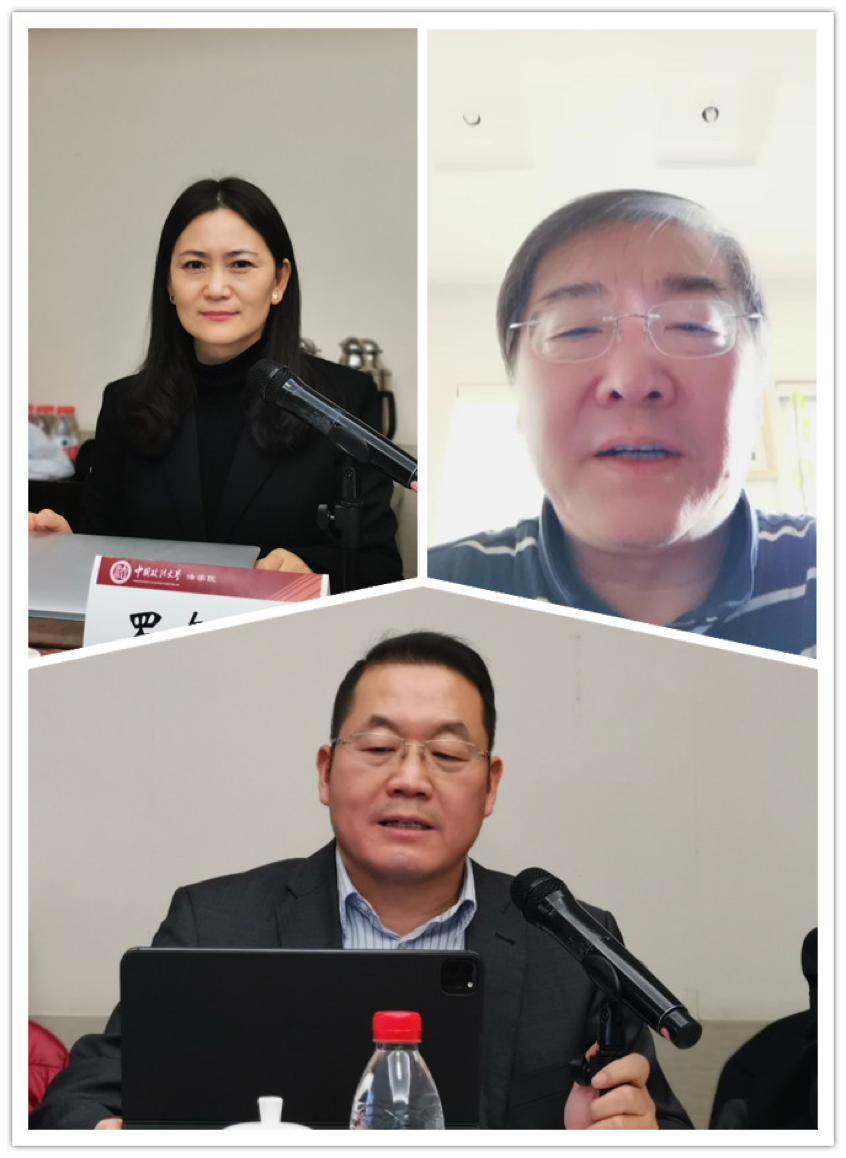
Afterwards, Prof.Wang Chengdong from the Law School of CUPL presided at the keynote speech session. In this session, there were five speakers, namely Professor Fang Shirong from Zhongnan University of Economics and Law, Professor Wang Canfa from the School of Civil and Commercial Economics of CUPL, Professor Wang Xixin from Peking University Law School, Researcher Jin Zining Peking University, and Associate Professor Ma Yun from the Law School of CUPL.
Professor Fang Shirong believed that the green principle should be regarded as the basic principle of administrative law. Professor Wang Canfa indicated that the inclusion of green principle is inseparable from the wave of "greening" laws around the world, and the "greening" of administrative law is reasonable.
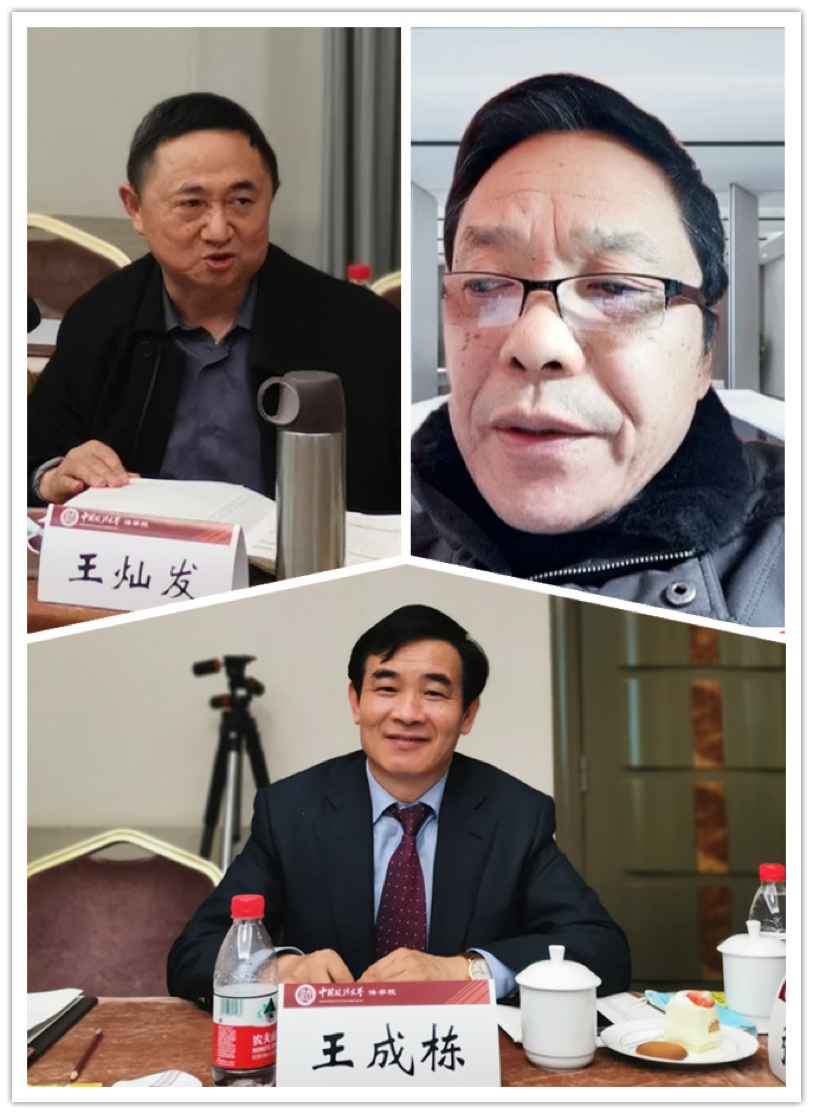
Professor Wang Xixin pointed out that the green principle may represent a concept and preference, and its connotation may have been covered by the existing principles of administrative law. For example, the efficiency principle requires the consideration of ecological costs. Researcher Jin Zining introduced the notion of "Administrative Law in Green". She illustrated that public law occupied a large proportion in the field of environmental protection law, which was determined by the particularity of environmental issues. Associate Professor Ma Yun sorted out the goals of the green principle, and uncovered that the green principle had the dual meaning including saving resources and protecting the environment.
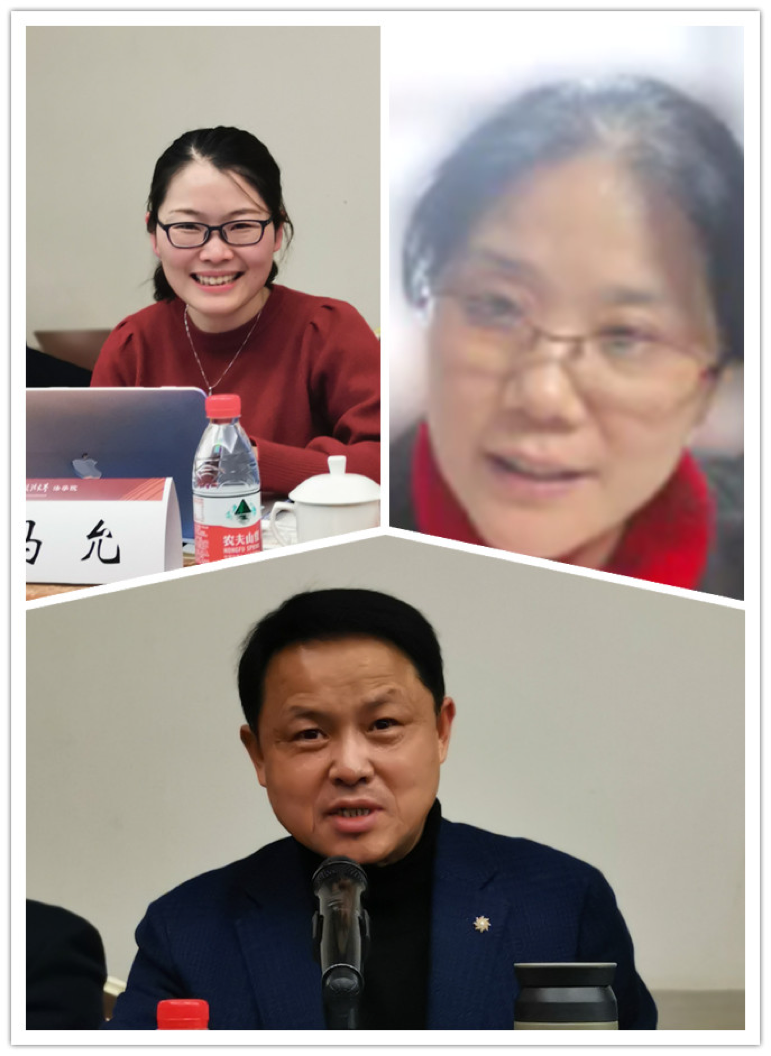
Next, Prof. Xie Zhiyong, Dean of the Institute of Comparative Law of CUPL, and Prof. Luo Zhimin co-chaired the talk session. Eleven talkers focused on the keynote report of five speakers.
Prof. He Bing from the Law School of CUPL believed that clearing green principles in administrative law would help promote the formation of green development methods and lifestyles, as well as a positive social trend and social equality. It is undoubted that the green principle has broad application space in public law, and the government should take active measures to help citizens lead a green life.
Prof. Song Hualin from the Law School of Nankai University focused on the "characteristics of environmental administrative systems and regulatory strategies". He talked that administrative agencies should compare and analyze various regulatory tools from the perspectives of legality and effectiveness when making environmental decisions, so as to the most appropriate one or ones.
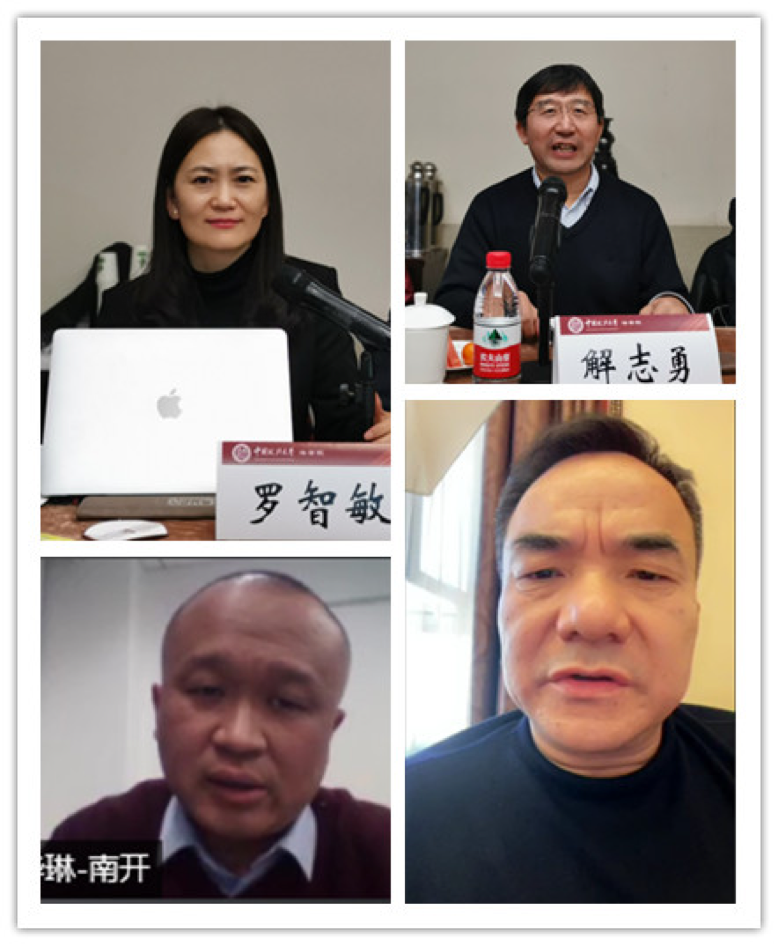
Prof. Zhao Peng from Research Center For Government By Law revealed that the green principle should first be legalized when introducing it into administrative law. What’s more, the relationship between it and other basic principles of administrative law should also be reconciled. In this sense, it is very necessary for the academic circles to study the green principles in administrative law.
Mr. Yang Fan put forward his own opinions on whether the green principle should be regarded as a basic principle or a secondary one of administrative law.
Prof. Wang Jianqin from the Law School of CUPL proposed that, from the macro point of view, we can think about green principles from the perspective of administrative ecology, which involves the overall construction of a country ruled by law, a government ruled by law, and a society ruled by law. From the micro point of view, attention should be paid to how the government specifically implements the green principles.
Prof. Zhao Hong from the Law School of CUPL held that the value of the green principle is embodied in regulating state behavior and guiding citizens’ behavior. From the provisions of Article 26 of the Constitution, it can be seen that the green principle is a state obligation and a value should be followed by the state when it express its will; for individuals, it is more of a moral guiding role.
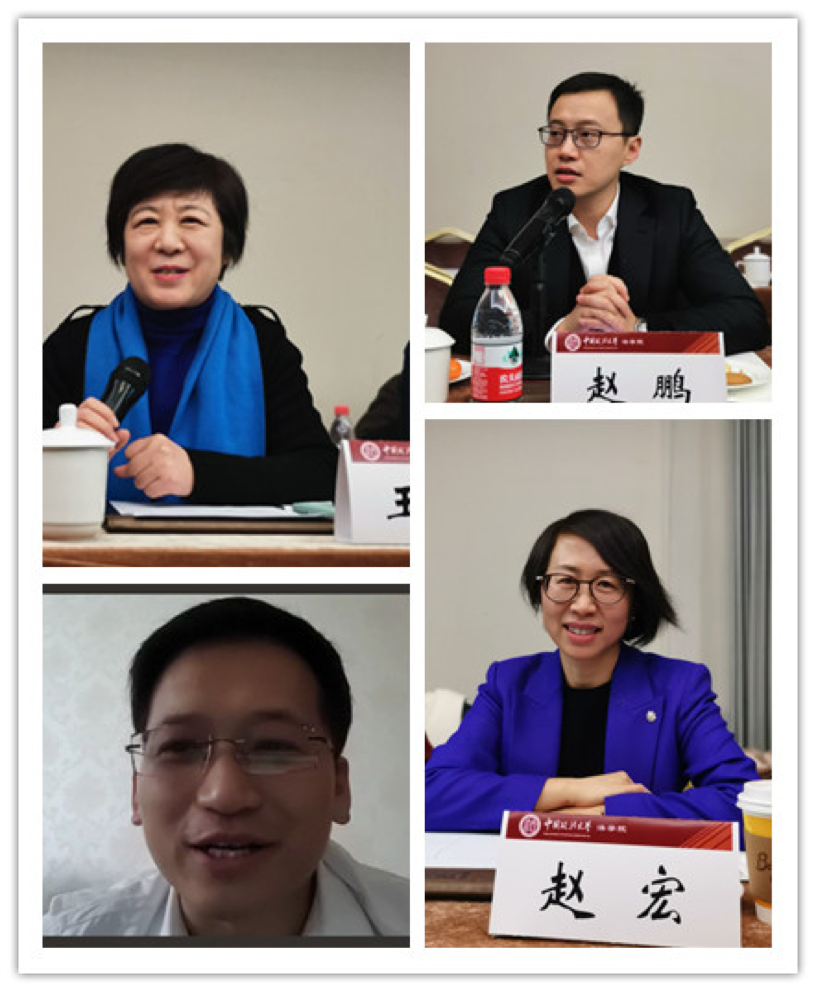
Associate Researcher Tan Binglin from the Institute of Social Sciences of Zhongnan University of Economics and Law pointed out that the green principles in administrative law have two functions. The first is to control the low-carbon behavior of administrative agencies and form the function of low-carbon legislation. The second is the function relative to the policy clause.
Associate Professor Du Hui from the Law School of Chongqing University raised the following questions: Is the green principle a normative requirement or the background of the current development of the rule of law? To what extent does environmental law need administrative law to play a role?How to develop the green principle in administrative law?
Associate Professor Cao Wei from Renmin University proposed that in the context of the new administrative law, in order to achieve the goal of good public policy, it was feasible to introduce green principles into administrative law.
Lecturer Wu Kaijie from Law School of Peking University pointed out that while the green principles in administrative law play a controlling role, it was necessary to actively respond to the goals of environmental supervision and seek a balance between legitimacy and effectiveness.
Hu Bin, a lecturer at the Law School of CUPL, considered that the introduction of green principles into administrative law in the future can provide important guidance for administrative legislation, administrative law enforcement, and justice.
In the free discussion section, Prof. Hu Jing from the School of Civil, Commercial and Economic Law of CUPL, and Prof. Qin Tianbao from the Law School of Wuhan University participated online. Prof. Wang Canfa from the School of Civil, Commercial and Economic Law of CUPL, as well as Prof. Wang Chengdong and He Bing responded to related questions.
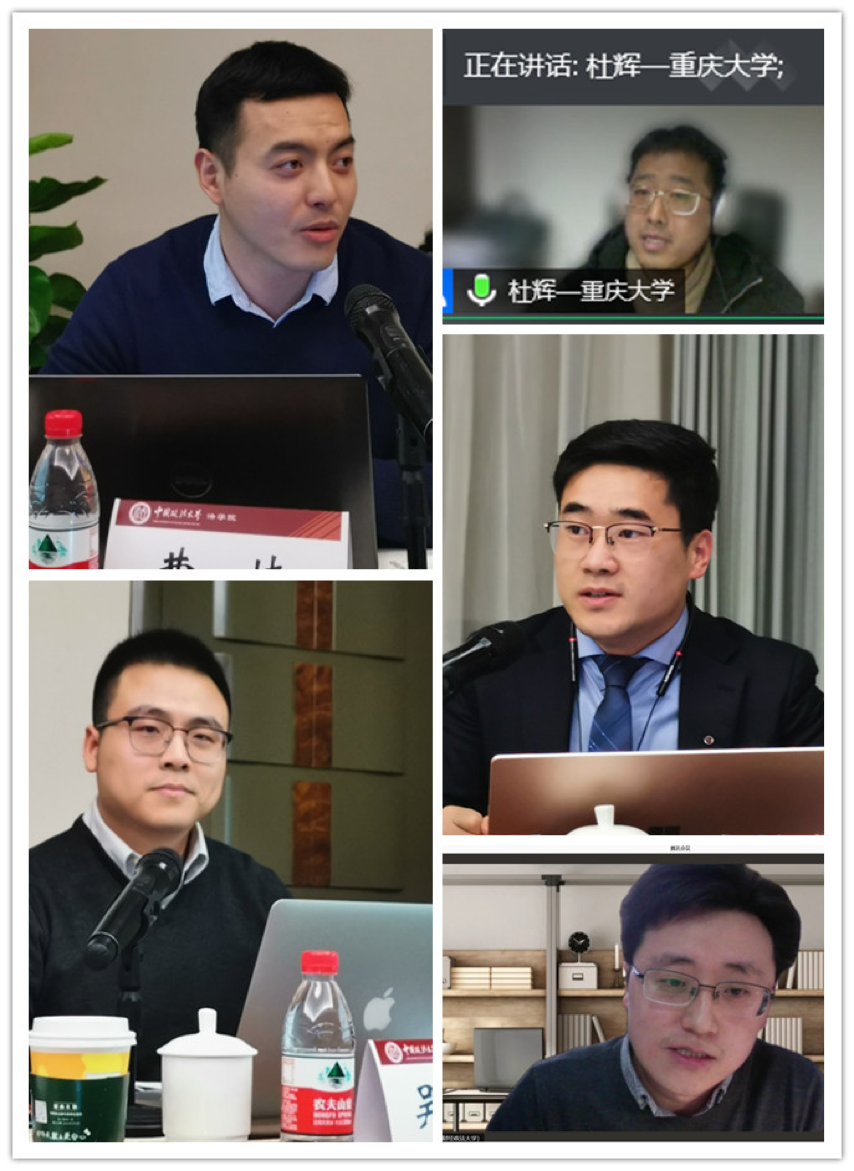
Zhang Dongyang, deputy director of the Institute of Administrative Law of CUPL, presided over the closing ceremony. Professor Cheng Xiezhong from the Law School of CUPL made a summary for the meeting. He concluded that the introduction of green principles would have a great effect in the exercise of supervisory powers and the distribution of public resources, though it would restrict the behavior of the government. On the one hand, the introduction would make green principles go beyond the specific field of environmental law and have an impact on existing legal concepts. On the other hand, it would add new value to the administrative law.
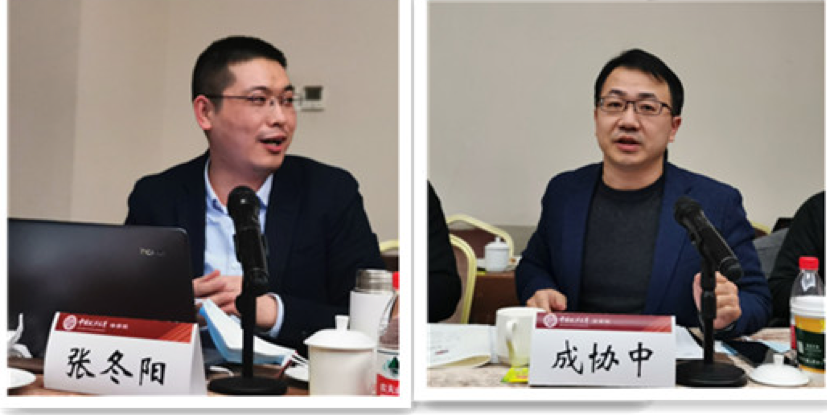
Finally, Prof.Cheng expressed his heartfelt thanks to the experts, scholars and students that participated in the conference. The“Green Principles in Administrative Law”conference came to a successful conclusion!